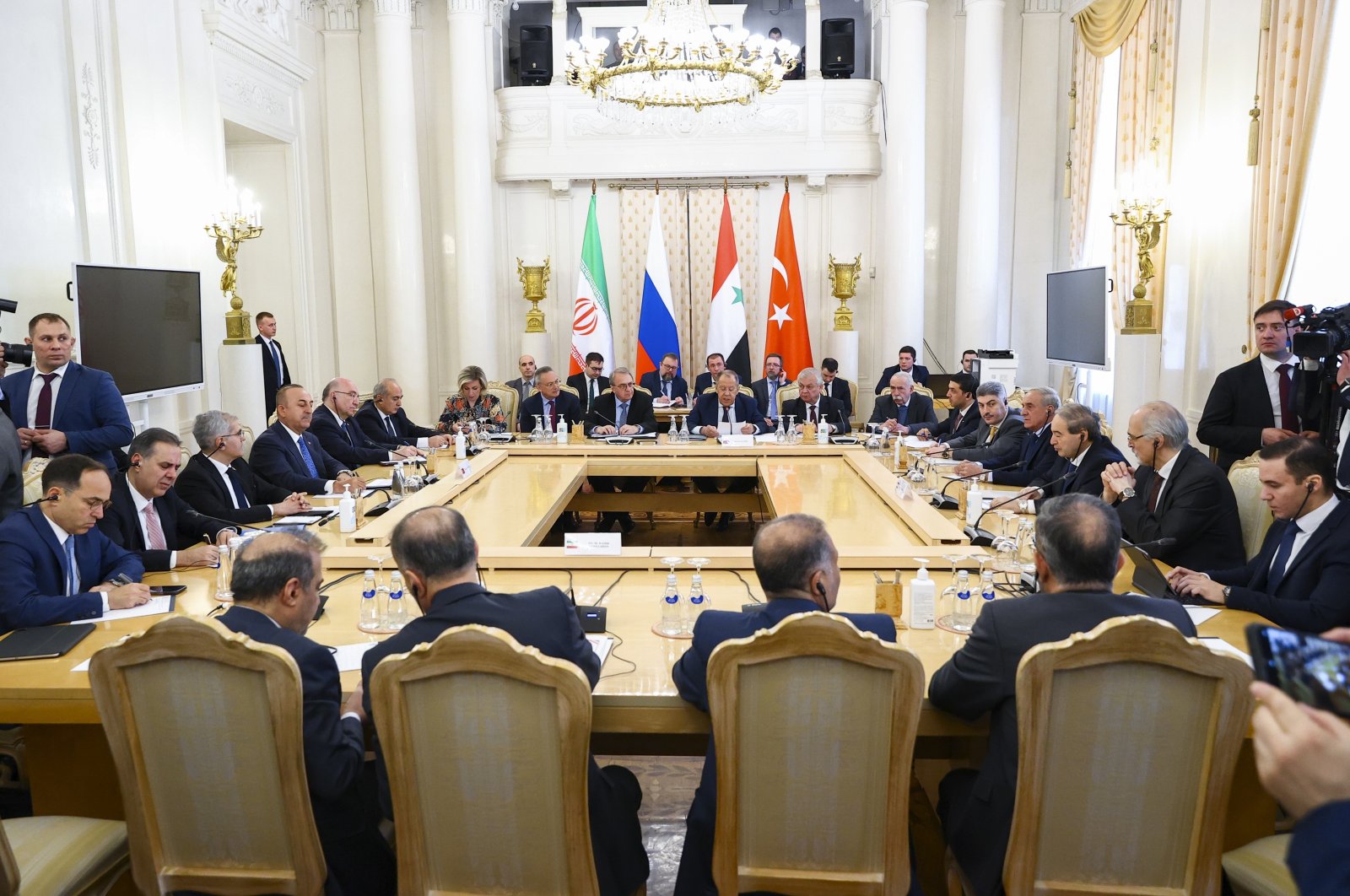
More than a decade after they cut off relations, Türkiye and the Assad regime of Syria returned to discussions to restore ties last year. Syrian leader Bashar Assad’s statements on Wednesday revive chances of normalization, though more progress is needed.
Assad’s remarks come at a time of growing concerns for Türkiye regarding the threat of the U.S.-backed terrorist group YPG, the Syrian wing of the PKK, which occupies Syria’s northeastern regions.
Speaking during a meeting with Russian Presidential Special Envoy Alexander Lavrentiev, Assad affirmed that Syria is open to all initiatives regarding Syrian-Turkish relations as long as they are based on respecting the sovereignty of the Syrian state over all its territory and fighting all forms of terrorism, according to regime’s news agency SANA. Türkiye has repeatedly assured the regime that they respect that sovereignty while carrying out operations against the PKK/YPG.
The Damascus-based regime and Ankara sought reconciliation in 2023 with talks sponsored by Assad’s main backers, Russia and Iran, but so far, meetings of Turkish and Syrian regime ministers have failed to produce a solid result in normalization.
The PKK/YPG’s presence in Syria remains a thorn in the normalization process, although a withdrawal of U.S. forces may change this. Earlier this year, several media outlets and experts speculated that Washington was considering this option. Under President Donald Trump, the U.S. announced the withdrawal of troops in 2018, though he later scaled back the scope of the withdrawal. The U.S. presence in the war-torn country, on the surface at least, focused on the fight against the terrorist group Daesh, something playing into the hands of the PKK/YPG, which legitimizes its occupation with "contribution” to this fight. The PKK/YPG further sought to cement its presence by attempting to hold "elections” in northeastern Syria, but Türkiye’s strong reaction forced them to postpone it to August. It is unclear whether they will go ahead with this effort, which is viewed as the first step to establishing a quasi-state in the region.
A "state” run by a terrorist group on its immediate border will spell trouble for Türkiye, which pursued cooperation with its other neighbor, Iraq, to stamp out the PKK from its territories. Limited autonomy for an entity that will be run by the terrorist group, however, may pave the way for another normalization: between the Assad regime and the PKK/YPG, which operates under the name of so-called Syrian Democratic Forces, which is not an all-out war with each other anyway. A U.S. withdrawal, on the other hand, can change the status quo as the PKK/YPG will lose its most prized, strongest ally and, thus, will lack the advantage of having military support against Türkiye.
Pundits also pointed out that both countries changed their discourse on conditions for full normalization, such as the withdrawal of Turkish troops. The regime’s foreign minister, Faisal Mikdad, recently stated that it was sufficient for Türkiye to declare it was ready to withdraw for talks on normalization, while the Turkish minister of national defense said earlier this month that Türkiye might consider withdrawing after securing its borders.
